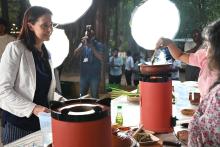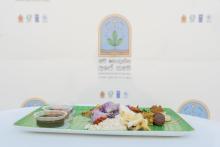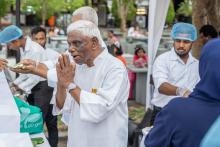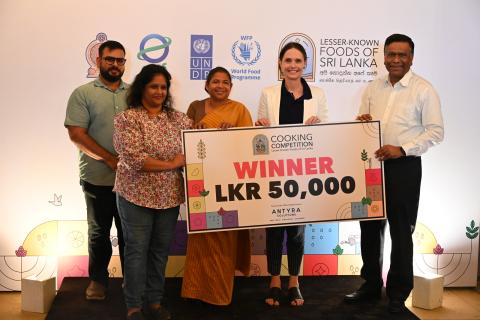Lesser-Known Food of Sri Lanka, Cooking Competition
The ‘Lesser-Known Foods of Sri Lanka’ campaign – an advocacy initiative launched by the United Nations Development Programme (UNDP) and the World Food Programme (WFP) in Sri Lanka together with the Ministry of Environment launched on 22 January 2025 sought to reintroduce nutritious underutilised traditional, heirloom food crops into the diet of everyday Sri Lankans. This campaign is directly supported through the Early Action Support (EAS) project, funded by the Global Environment Facility (GEF) which plays a critical role in accelerating Sri Lanka’s implementation of the Global Biodiversity Framework by integrating biodiversity conservation into national policies and strategies.
The objective of this campaign was to address two main concerns in Sri Lanka; the rapid decline of Sri Lanka’s biodiversity and the multiple threats it faces; and the access to a wide variety of foods among vulnerable communities to promote better nutrition. By popularising underutilised food crops, the campaign aims to create commercial value for these nutrient-dense crops and thereby create the incentive for their cultivation and ultimately their preservation. These crops can be easily grown in a home garden or adapted to commercial cultivation, providing affordable food options across the urban and rural population of Sri Lanka.
Two activations were held in Colombo at Diyatha Uyana, Battaramulla and at Galle Face Green, with dishes served to over 1,000 people across two weekends. Snacks, drinks and desserts using lesser-known ingredients such as dandila, hibiscus, moon seed and taro leaves among others were prepared by celebrity chef Pubilis Silva and his team, giving the public an opportunity to interact and learn more about these lesser-known foods of Sri Lanka.
A digital cooking competition was held throughout the campaign, inviting people from all over the country to submit recipes that use underutilised crops.
The campaign included online and offline activities that engaged both urban and rural communities.
A key knowledge product of the campaign included the curation of a recipe book, with the support of the Department of Agriculture, comprising over 50 recipes using underutilised ingredients. Over the course of the next few months, this recipe book will be distributed amongst school meal providers enrolled in WFP’s Home-Grown School Feeding (HGSF) programme who supply meals for over 200,000 school children across seven districts, along with other key target audience groups including pregnant mothers and hotel school students, and will be made available online for the general public.







